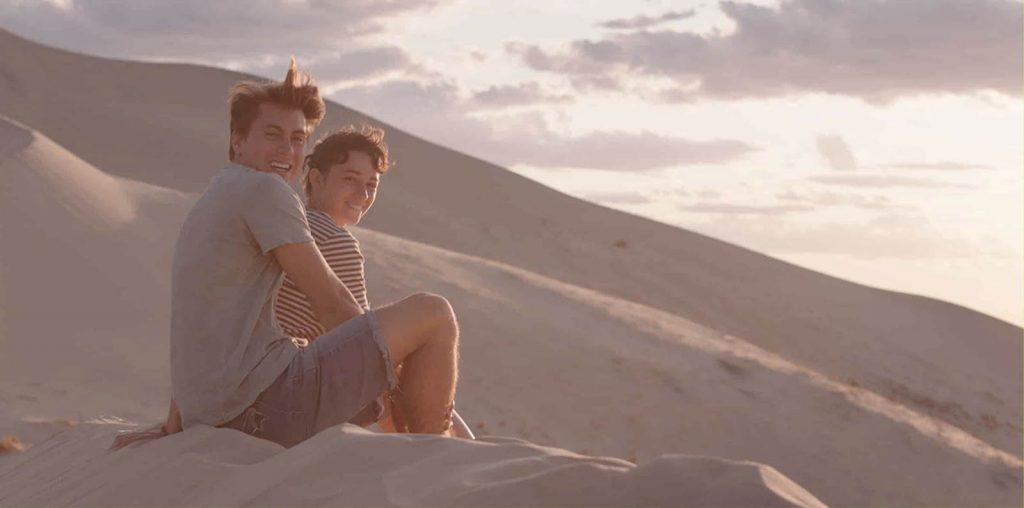
Prolific television and film producer Brian Grazer assembles a rich team of artists for the reality-inspired film “American Gangster“ (Ridley Scott), which is set in the late 1960s and early 1970s of New York City and New Jersey and traces the ambitions of drug trafficker Frank Lucas (Denzel Washington).
Three overlapping plot lines constitute the narrative of the film and stem primarily from the actions of two characters: Frank Lucas and Richie Roberts (Russell Crowe). “American Gangster” devotes its first thirty or so minutes establishing Lucas and Roberts as men trying to survive in their respective worlds. Lucas’ mentor and employer dies, leaving Lucas a chance to fill a very big hole in the streets of Harlem. Roberts is trying to be a good cop (and then gets ostracized for it), pass the bar exam to become a lawyer, and deal with his ex-wife (Carla Gugino) who is suing for sole custody of their son.
Roberts, presented as the only policeman in the NY-NJ area with any sense of ethics left, is assigned to take form a narcotics division upon the war-against-drugs mandate from President Richard Nixon. In the mean time, NYC-based Detective Trupo (Josh Brolin) and the rest of his special investigations unit reap the fruits of a society (allowed to be) addicted to drugs. They take hush money from any profitable supplier or dealer. Given the financially strategic practices of Frank Lucas and company, Trupo inevitably demands a cut from the Lucas cash flow. His territorial attitude forces him to pull jurisdictional rank whenever Roberts crosses state lines from NJ into NY.
Roberts and Trupo steadily begin to pay closer attention to Frank Lucas after attending the Muhammad Ali vs. Joe Frazier boxing match at Madison Square Garden in 1971. Roberts snaps a few photographs of the Chinchilla-coat-wearing Lucas and can now put a face to a name that has been brought up in task force meetings. Trupo notices how close Lucas is sitting to the ring and guesses that only a high-rolling drug dealer could afford such a seat.
The key to Lucas’s success is his business plan: obtain the product directly from the source (Thailand) and sell very high quality merchandise at a much lower price. It doesn’t take long at all before Lucas buys a new home for his mother (Ruby Dee) and moves his brothers (Chiwetel Eijofor, Common, Warner Miller, J. Kyle Manzay, Albert Jones) and cousins (T.I. and Malcolm Goodwin) from North Carolina up to New York to help operate his business. His ‘Blue Magic’ brand of heroin brings in a lot of money, but Lucas carries on a normal enough life that keeps him off the radar of the law for a while.
The Blue Magic sheen starts to wear down not only because of domestic issues (competitors are getting antsy, law enforcement agents have their eyes on him), but the non-progress of the Vietnam War is interfering with Lucas’s operations (the North Vietnamese have invaded Saigon and all American military’s planes are being used for evacuation and relocation). Frank Lucas will not be deterred, though. He still has a few more cards up his sleeve to secure another shipment of raw materials.
Denzel Washington is an absolute marvel on screen. Timeless and talented, he demonstrates similar gait and facial expressions (the laugh, the grin, the scowl) in most of his films and adjusts those mannerisms to fit the characters he’s playing. As a man whose growing wealth cuffs him to growing responsibilities and paranoia, Washington’s presence powerfully emanates a pendulum of emotions. Lucas doesn’t buckle under stress; he stands up to it—sometimes within a fraction of a second. When his brothers do not conduct themselves with discretion or class, he teaches them a painful lesson. When he and his wife (Lymari Nadal) become the targets of a drive-by-shooting, he get mad and even.
The acting is unquestionably strong, the songs are integrated appropriately (functioning as both audio bridges and dramatic enhancements), and yet something is missing in how the individual pieces of the film—the story, the themes, and the violence—fit together. The film hovers over Frank Lucas and Richie Roberts separately until the final sequences, where they occupy the same space for the second time and actually get to confront each other. It’s almost completely satisfying. Almost.
The violence in and of itself is justifiably visceral and narratively necessary but draws attention to the representations of the other characters and the question of viewer identification. Not all psychologically and visually heavy films require the audience to be behind the protagonist or antagonist’s agendas, but it doesn’t hurt to pick a side. Moreover, after 157 minutes, I found myself unable to decide if I wished the film could have focused on Lucas more.
“American Gangster” touches on more than police corruption and the war on drugs. As profoundly as World War I and II affected the United States, the Vietnam War forever altered its political and cultural environment. From explicit links (fashion and news footage) to ambient noise (the microwave as a new kitchen appliance), Ridley Scott’s film drapes this setting around the viewer’s shoulders, reminding the audience that “American Gangster” is a portrayal of a group of people and a period of American history.
